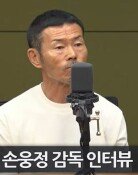Is N. Korea willing to discuss CVID?
Is N. Korea willing to discuss CVID?
Posted April. 10, 2018 07:43,
Updated April. 10, 2018 07:43
North Korean leader Kim Jong Un has said he is willing to discuss denuclearization with U.S. President Donald Trump in their summit in May, U.S media outlets on Sunday quoted a Trump administration official as saying. The confirmation came as North Korean and American officials have been holding secret, direct talks to prepare for the meeting. South Korea’s presidential office said on Sunday that the communication between North Korea and the United States is progressing.
Until Sunday, Washington had not confirmed North Korea’s willingness to discuss giving up its nuclear weapons. It had only relied on what South Korea’s special envoy relayed - Kim is willing to talk about denuclearization. Now Pyongyang has directly delivered the message of its willingness to discuss the denuclearization and Washington has accepted this assurance as ready for serious talks, dismissing skepticism about whether the rogue regime has a genuine intention to hold a historical summit.
But this does mean neither the summit between Pyongyang and Washington is certain to be held nor the successful outcome is to follow. The talks are mostly focusing on deciding on a location for the meeting while North Korean officials are pushing to hold the meeting in their capital, Pyongyang, CNN reported. There is reportedly little progress, however, with regard to coordinating major agenda.
Questions remain about what kind of denuclearization North Korea intends to discuss. It is unclear whether the regime sees its abandoning nuclear weapons as complete, verifiable irreversible denuclearization (CVID). John Bolton, who has been appointed on Monday as Trump’s new national security advisor, will check first if the regime is willing to pursue CVID once he takes the initiative in the preparation talks. But it is doubtful whether the regime will accept it.
It is clear that North Korea is pushing for the denuclearization on the condition of its regime’s survival. As Pyongyang has done many times in the past, North Korea is likely to demand that Washington guarantee the regime’s security and ease sanctions, in return for implementing steps toward abandoning its nuclear program, which includes freezing, disabling, reporting, inspecting and discarding. Pyongyang could go as far as to say they will consider the denuclearization if the United States withdrew its troops from South Korea and its nuclear umbrella of deterrence, in an attempt to shake a firm alliance between South Korea and the United States.
The North Korea-U.S. summit is highly anticipated. However, we should not take risk with leaving everything to this unpredictable meeting. The South Korean government needs to play a key role in removing uncertainties. The upcoming inter-Korean summit will be a great opportunity to see Kim Jong Un’s willingness to completely abandon its nuclear program, by closely working with the United States. Now we have only 15 days.







